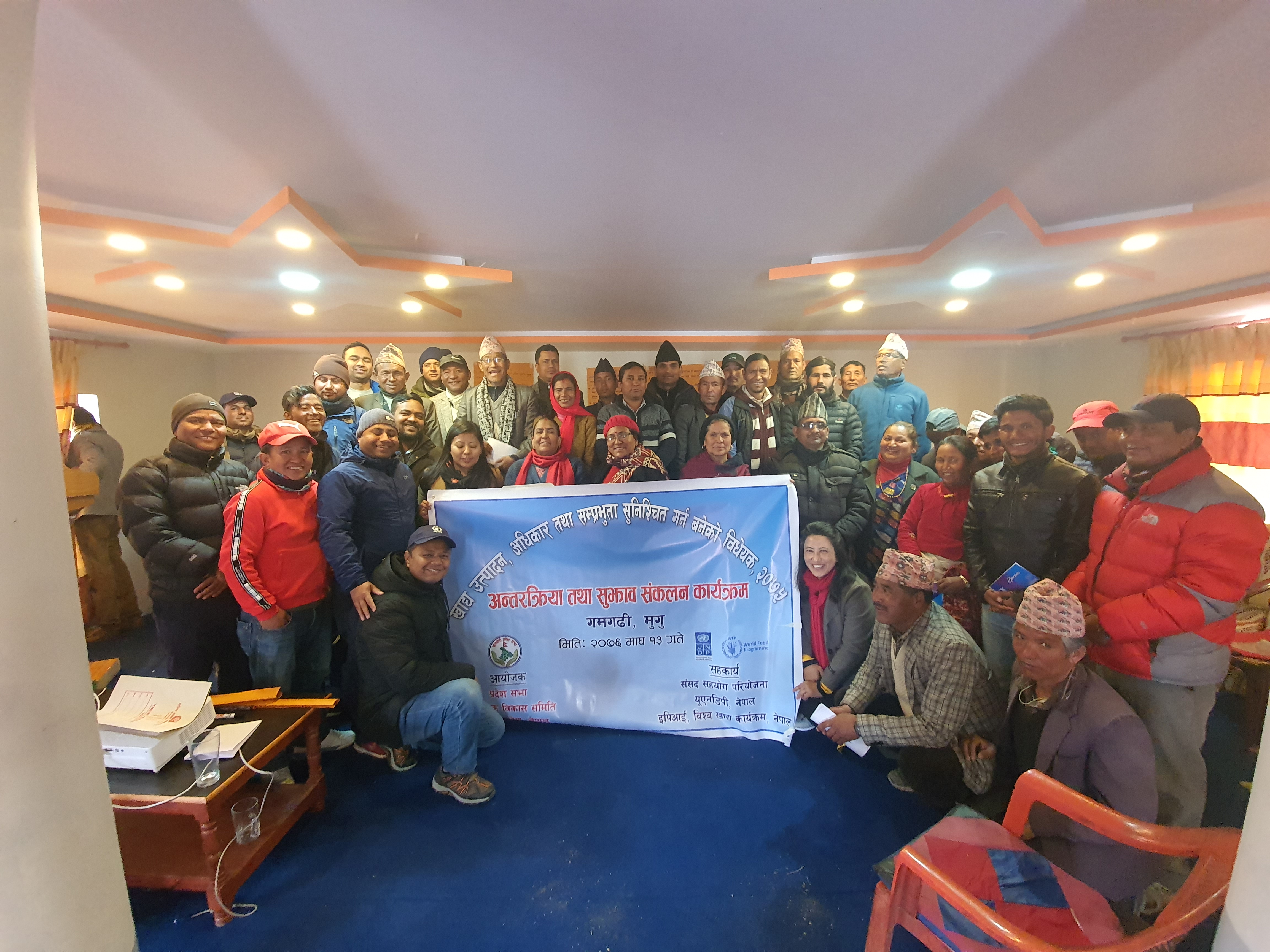In Mugu, participants of the public consultation watch Raj Bahadur Shahi, Speaker of the Karnali Provincial Assembly, respond to queries by means of VCF.
In Karnali Province, the gap between the public and their representatives has lessened thanks to video conferencing facilities
Mugu, January 31: In a bid to promote openness, transparency and accountability of the parliament, the Karnali Provincial Assembly has formally started collecting feedback from the public by means of video conferencing facilities (VCFs).
On January 27, residents of Mugu district provided their opinions on the Food Sovereignty Bill during a public consultation organized by the Social Development Committee of the Karnali Provincial Assembly. At the event, which took place at district headquarters Gamgadhi, the public was able to connect with Provincial Assembly members, including Speaker Raj Bahadur Shahi, via VCF.
With support from UNDP's Parliament Support Project, VCF facilities have been installed in Karnali Provincial Assembly and the offices of the District Coordination Committee of all 10 districts of Karnali Province. Mugu is the first district in which the public feedback process has been started. The nine other districts of the province too will follow suit, assured Shahi. “Each member of the provincial assembly is ready to communicate with the public through this technology,” he said.
Four members of the Karnali Provincial Assembly – Raju Nepali, Yagya Bahadur BC, Rato Kami and Kaushilawoti Khatri – attended the public consultation in Mugu, while an equal number of MPs – Raj Bahadur Shahi, Gulab Jung Shah, Meena Singh Rakhal and Devi Oli – were present at the Secretariat of the Karnali Provincial Assembly in Surkhet district.
A total of 65 participants from different government offices – including the District Agriculture Office, the Livestock Office, and the District Administration Office – representatives of local governments and political parties, civil society, media and teachers were present at the public consultation in Mugu.
German Nepali, Programme Coordinator of the Rural Community Development Center, stated that such dialogues should be continued to ensure people's participation in law-making, which contributes to making the parliament and parliamentarians more accountable and responsible towards citizens. Meanwhile, Raj Bahadur Shahi tended to focus on the cost effectiveness of VCFs and, given the geographical complexities of Karnali Province, the ease of collecting feedback and suggestions.
Raju Nepali, Chair of the Social Development Committee of the Karnali Provincial Assembly, stated that they would incorporate all relevant feedback received into the bill before submitting the report to the respective ministries. She added that if the public had more suggestions, they could connect to the provincial assembly via VCFs and provide their comments accordingly.
UNDP’s Parliament Support Project (PSP) is devoted to supporting the capacity building of parliaments, creating wider discourse around draft laws and promoting parliamentary openness, among others. The project also emphasizes on creation of opportunities for people from marginalized groups, youth and women to participate in parliamentary affairs.

 Locations
Locations



